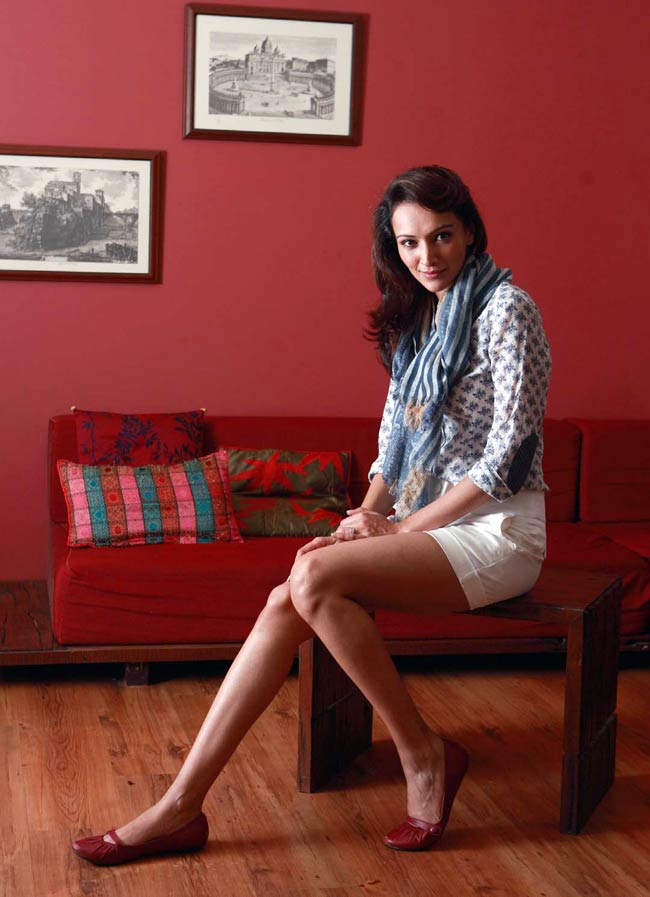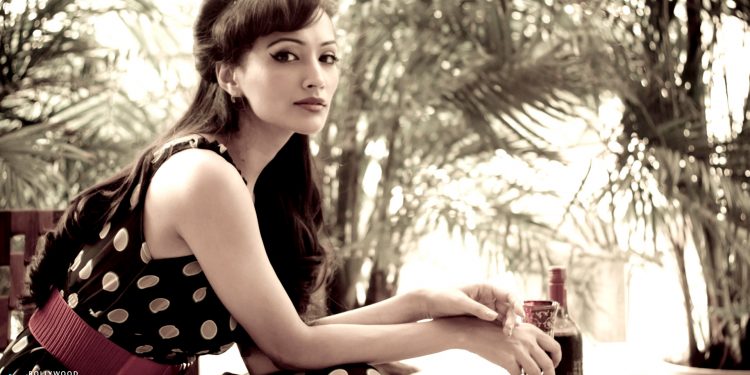Former Miss India contestant Dipannita Sharma, now an actress, says she has been very lucky to have played characters in films that mean something and are not in the movie just as decorative pieces.
Dipannita has featured in Hindi films like 16 December, “My Brother… Nikhil”, “Ladies vs Ricky Bahl” and “Pizza”, but has not always played the lead role.
“I played a lead actress in 16 December. In “Ladies vs Ricky Bahl” we were all lead actors from what we were told on contract because we were cast opposite the lead actor – Ranveer Singh. I think the audience saw it differently. That’s alright,” Dipannita told reporters.
For her, it is important to play good and interesting parts that showcase her as an actor as opposed to a “meaningless lead who only has two songs in a few scenes with a really big actor”.
“As an actor, I don’t believe in just being in the lead or supporting role. I believe, a character should be interesting. There should be a reason why the character is there in the film and I must say that, I’ve been very lucky to have played parts in films that mean something and are not in the film just as a decorative piece,’’ she said.
She has bagged the best actress award at the Love International Film Festival, US, this year for playing mother in Assamese film Xhoixobote Dhelamite (Rainbow fields).
“It’s extremely encouraging for a regional industry like… the Assamese film industry, which has been struggling for a while although it has immense talent. You can tell a story in the Assamese language and it can be accepted worldwide; that itself is a great feeling. It gives a lot of hope for the industry,” she said.
“At the festival, they had over 150 -160 entries from Iran, Germany and other places. Ours was the only film from India. I feel this film festival looks at healing the world through cinema and bringing the world together through films.
“Our film talks about healing. Its content is what has created a lot of interest in it.”
The semi-autobiographical film takes inspiration from director Bidyut Kotoky’s life. It is based on the psychological trauma that children in Assam went through during ULFA agitation in the 1980s.
Dipannita, who hails from Assam, is working on her own company, North East Film Studio.
“North East Film Studio is a big and wide dream of mine and my business partners. It is something that we are working towards… to shift focus to northeast India in a mainstream manner…
“There’s a lot of work going into it and we are working on the first project. It should take shape within a few months,” she said.
What type of movies is she planning to promote?

“I love being part of cinema. Now that I’ve done my first Assamese film, I’ve realized that I enjoy working in my native language as well. But as an actor or a producer, I don’t think I’d like to limit myself to just doing one kind of cinema and just doing Hindi or Assamese or English.
“I just want to be a part of good cinema. Yes, I have a huge connect with Assamese. It’s a different approach when I’m doing my native language film.”
More than work, it is an emotional experience for her.
Would she like to make a film on what’s happening in Assam like mob lynching for cows or the National Register of Citizens?
“This question is a little tricky. It’s very difficult to say at this stage whether I want to make a film on these issues. If I feel strongly about any of these issues, and if a script can be woven around it, then sure, I would be happy to make it.”
“There are other issues pertaining to Assam. It is a matter of time and several other factors including economics and a solid script that needs to be woven around a real life incident,” she adds.






































